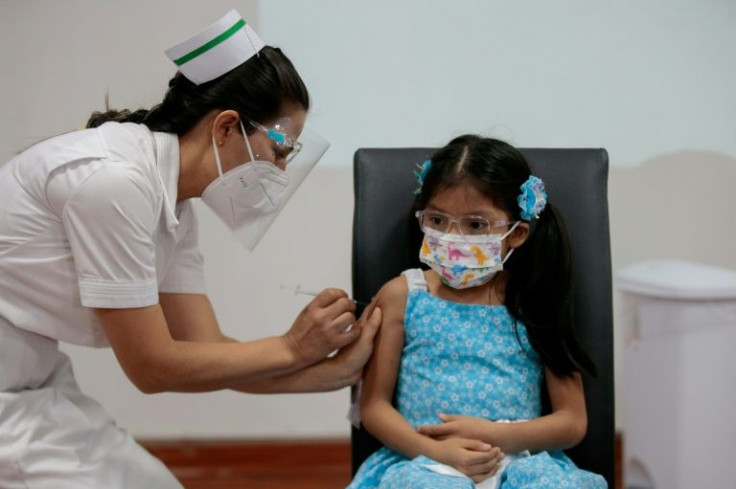Omicron Symptoms List: This Early Sign Likely Means You Have COVID-19
KEY POINTS
- Sore throat is one of the first symptoms observed in omicron cases
- It is particularly present in mild breakthrough infections
- Doctors urged people to get jabbed as the vaccinated have better outcomes compared to those who are not
One of the first symptoms observed in people infected with the omicron variant of COVID-19 is sore throat, doctors said.
The symptom is often present in breakthrough infections — fully vaccinated coronavirus cases — that are mild, Dr. Allison Arwady, commissioner of the Chicago Department of Public Health, was cited as saying by NBC 5 Chicago.
"Especially in people who we're seeing these more mild breakthrough infections, we are definitely seeing sore throat be a predictor in that group," Arwady said.
Dr. Patricia Williams, a family medicine provider with hospital network Novant Health, also said that sore or scratchy throat has been the "biggest complaint" among omicron patients.
COVID-19 patients usually experience sore throat, fever, chills and body aches, among other symptoms, but omicron cases have exhibited more upper respiratory symptoms than lower respiratory, Williams explained.
Early data on the variant suggested that it accumulated in the upper airways and did not infect cells deep in the lungs, which could explain both its reduced lethality and upper respiratory symptoms.
Other omicron symptoms included cough, congestion, runny nose and fatigue, according to Dr. Katherine Poehling, an infectious disease specialist and member of the Advisory Committee on Immunization Practices.
The variant also did not take away people's sense of smell and taste, unlike delta.
However, the symptoms Poehling listed may only reflect certain populations, and the evidence so far is anecdotal and not based on scientific research, the doctor explained.
The Centers for Disease Control and Prevention (CDC) has not identified any symptoms specifically linked with omicron, but the agency has provided a list of reported COVID-19 symptoms.
Symptoms can appear anywhere from two to 14 days after exposure to the virus, according to the CDC.
Williams urged people to get jabbed as "those who are vaccinated are showing a much better outcome, much fewer symptoms, much better symptoms and tolerable than those who are unvaccinated."
Breakthrough infections "are likely to occur" because of omicron, but "current vaccines are expected to protect against severe illness, hospitalizations and deaths" in infections caused by the variant, according to the CDC.
"Vaccines remain the best public health measure to protect people from COVID-19, slow transmission and reduce the likelihood of new variants emerging," the agency said.
The U.S. has reported a total of 65,159,554 coronavirus cases and 847,577 virus-related deaths since the start of the pandemic, publicly available data provided by the CDC showed.

© Copyright IBTimes 2025. All rights reserved.





















